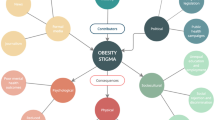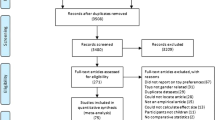Abstract
The purpose of this paper is to clarify what is meant by a gender-specific habitus which is a useful theoretical concept for analyzing health-related dispositions on the part of women and men. However, there is very little information on the notion of a generic female or male habitus. Bourdieu, who advanced the concept of habitus more than any other theorist in sociology, mentions a female and male habitus, but provides no definition, details, or descriptions. Consequently, in studies of health dispositions primarily applicable to women or men, there is no clear concept of a habitus specific to either gender available to researchers. In this paper, an ideal-type approach was used to construct male and female models of a gender-specific habitus for comparative purposes. While pure forms of either may not exist in reality nor apply to all men or women, they nevertheless serve as an ideal type to judge variance in the health-related dispositions generated by a gender-specific habitus. They provide a baseline reference for a gendered habitus in the absence to date of any other existing models.
Similar content being viewed by others
References
Bourdieu, P. 1977. Outline of a Theory of Practice. Cambridge: UK Cambridge University Press.
Bourdieu, P. 1984. Distinction. Cambridge, MA: Harvard University Press.
Bourdieu, P. 1990. The Logic of Practice. Stanford, CA: Stanford University Press.
Bourdieu, P. 2000. Pascalian Meditations. Stanford, CA: Stanford University Press.
Bourdieu, P. 2001. Masculine Domination. Stanford, CA: Stanford University Press.
Bourdieu, P., and L. Wacquant. 1992. An Invitation to Reflexive Sociology. Chicago: University of Chicago Press.
Brown, B., P. Crawford, B. Nerlich, and N. Koteyko. 2008. The habitus of Hygiene: Discourses of Cleanliness and Infection in Nursing Work. Social Science and Medicine 67 (7): 1047–1055.
Bunn, C., S. Wyke, C. Gray, A. Maclean, and K. Hunt. 2016. ‘Coz Football is What We all Have’: Masculinities, Practice, Performance and Effervescence in a Gender-Sensitized Weight-Loss and Healthy Living Program. Sociology of Health & Illness 38 (5): 812–828.
Caddick, N., B. Smith, and C. Phoenix. 2015. Male Combat Veterans’ Narratives of PTSD, Masculinity, and Health. Sociology of Health & Illness 37 (1): 97–111.
Camic, C. 1986. The Matter of Habit. American Journal of Sociology 91 (5): 1039–1087.
Carli, E., and L. Weber-Baghdiguian. 2016. Self-reported Health and Gender: The of Social Norms. Social Science and Medicine 153: 220–229.
Cockerham, W. 2000. Health Lifestyles in Russia. Social Science and Medicine 51: 1313–1324.
Cockerham, W. 2005. Health Lifestyle Theory and the Convergence of Agency and Structure. Journal of Health and Social Behavior 46 (1): 51–67.
Cockerham, W. 2013a. Social Causes of Health and Disease, 2nd ed. Cambridge, UK: Polity.
Cockerham, W. 2013b. Bourdieu and an Update of Health Lifestyle Theory. In Medical Sociology on the Move: New Directions in Theory, ed. W. Cockerham, 127–154. Dordrecht: Springer.
Cockerham, W., S. Bauldry, B. Hamby, J. Shikany, and S. Bae. 2017. A Comparison of Black and White Racial Differences in Health Lifestyles and Cardiovascular disease. American Journal of Preventive Medicine 52 (S1): S56–S62.
Cockerham, W., and B. Hinote. 2009. Quantifying Habitus: Future Directions. In Quantifying Theory: Pierre Bourdieu, ed. K. Robson, and C. Sanders, 201–210. Dordrecht: Springer.
Collins, P., and S. Bilge. 2016. Intersectionality. Cambridge, UK: Polity.
Connell, R. 1995. Masculinities. Cambridge, UK: Polity.
Connell, R., and J. Messerschmidt. 2005. Hegemonic Masculinity: Rethinking the Concept. Gender and Society 19 (6): 829–859.
Connell, R., and R. Pearse. 2015. Gender in World Perspective, 3rd ed. Cambidge, UK: Polity.
Courtenay, W. 2000. Constructions of Masculinity and Their Influence on Men’s Well-being: A Theory of Gender and Health. Social Science and Medicine 50: 1385–1401.
Dolan, A. 2011. ‘You Can’t Ask for a Dubonnet and Lemonade’: Working Class Masculinity and Men’s Health Practices. Sociology of Health & Illness 33 (4): 586–601.
Dolan, A., and C. Coe. 2011. Men, Masculine Identities and Childbirth. Sociology of Health & Illness 33 (7): 1019–1034.
Dumas, A., J. Robitaille, and S. Jette. 2014. Lifestyle as a Choice of Necessity: Young Women, Health and Obesity. Social Theory and Health 12 (2): 138–158.
Elias, N. ([1939] 1994) The Civilizing Process. Malden, MA: Basil Blackwell.
Emslie, C., D. Ridge, S. Ziebland, and K. Hunt. 2006. Men’s Accounts of Depression: Reconstructing or Resisting Hegemonic Masculinity? Social Science and Medicine 62: 2246–2257.
Fleuriet, K., and T. Sunil. 2015. Reproductive Habitus, Psychosocial Health, and Birth Weight Variation. Social Science and Medicine 138 (1): 102–109.
Hennis, W. 1983. Max Weber’s Central Question. Economy and Society 12: 135–180.
Hill, T., A. Burdette, C. Ellison, and M. Musik. 2007. Religious Involvement and Healthy Lifestyles: Evidence From the Survey of Texas Adults. Annals of Behavioral Medicine 34: 217–222.
Hinote, B. 2014. Habitus, Class, and Health. In Wiley-Blackwell Encyclopedia of Health, Illness, Behavior, and Society, ed. W. Cockerham, R. Dingwall, and S. Quah, 741–747. Oxford, UK: Wiley-Blackwell.
Hinote, B., and G. Webber. 2012. Drinking Toward Manhood: Masculinity and Alcohol in the Former USSR. Men and Masculinities 15 (3): 292–310.
Hughes, J. 2003. Learning to Smoke: Tobacco Use in the West. Chicago: University of Chicago Press.
Husserl, E. ([1952] 1989) Ideas Pertaining to Pure Phenomenology and to a Phenomenological Philosophy. London: Kulwer Academic.
Jones, I., O. Papacosta, P. Whincup, S. Wannamethee, and R. Morries. 2011. Class and Lifestyle ‘Lock-In’ Among Middle-Aged and Older Men: A Multiple Correspondence Analysis of the British Regional Heart Study. Sociology of Health & Illness 33 (3): 399–419.
Kalberg, S. 1994. Max Weber’s Comparative Historical Sociology. Chicago: University of Chicago Press.
Keenan, K., L. Suburova, N. Bobrova, D. Elbourne, S. Ashwin, and D. Leon. 2015. Social Factors Influencing Russian Male Alcohol Use Over the Life Course: A Qualitative Study Investigating Age Based Social Norms, Masculinity, and Workplace Context. PLoS One 10 (11): e0142993. doi:10.1371/journal.pone.042993.
King, D., A. Marinous, M. Carnemolla, and E. Everett. 2009. Adherence to Healthy Lifestyle Habits in US Adults, 1988–2006”. American Journal of Medicine 122: 528–534.
Lahire, B., ed. 1999. De la théorie de l’habitus a une sociologie psychologique. In le Travail Sociologique de Pierre Bourdieu, 121–154. Paris: la Découverte.
Lamont, M. 1992. Money, Morals & Manners. Chicago: University of Chicago Press.
Lane, J. 2000. Pierre Bourdieu: A Critical Introduction. London: Pluto Press.
Mahalik, J., S. Burns, and M. Syzdek. 2007. Masculinity and Perceived Normative Health Behaviors as Predictors of Men’s Health Behaviors. Social Science and Medicine 64: 2201–2209.
Mauss, M. 1936. Sociologie et anthropologie. Paris: PUF.
MacLean, A., H. Sweeting, and K. Hunt. 2010. ‘Rules’ for Boys, ‘Guidelines’ for Girls: Gender Differences in Symptom Reporting During Childhood and Adolescence. Social Science and Mediucine 70: 597–604.
McGovern, P., and J. Nazroo. 2015. Patterns and Causes of Health Inequalities in Later Life: A Bourdieusian Approach. Sociology of Health & Illness 37 (1): 143–160.
Merleau-Ponty, M. 1962. The Phenomenology of Perception. London: Routledge.
Miller, A., and T. Shriver. 2012. Women's Childbirth Preferences and Practices in the United States. Social Science & Medicine 75: 709–716.
Mollborn, S., L. James-Hawkins, E. Lawrence, and P. Fomby. 2014. Health Lifestyles in Early Childhood. Journal of Health and Social Behavior 55 (4): 386–402.
Morioka, R. 2014. Gender Difference in the Health Risk Perception of Radiation From Fukushima in Japan: The Role of Hegemonic Masculinity. Social Science and Medicine 107 (1): 105–112.
Musolino, C., M. Warin, T. Wade, and P. Gilchrist. 2015. ‘Healthy Anorexia’: The Complexity of Care in Disordered Eating. Social Science and Medicine 139 (1): 18–25.
Noone, J., and C. Stephens. 2008. Men, Masculine Identities, and Health Care Utilization. Sociology of Health & Illness 30 (5): 711–725.
Norbert, E. ([1939] 1994) The Civilizing Process. Oxford: Blackwell.
O’Brien, R., K. Hunt, and G. Hart. 2005. ‘It’s Caveman Stuff, But That is to a Certain Extent How Guys Still Operate’: Men’s Accounts of Masculinity and Help Seeking. Social Science and Medicine 61: 503–516.
Pavalko, E., F. Gong, and J. Long. 2007. Women’s Work, Cohort Change, and Health. Journal of Health and Social Behavior 48 (4): 352–368.
Pampel, F. 2001. Cigarette Diffusion and Sex Differences in Smoking. Journal of Health and Social Behavior 42 (4): 388–404.
Pampel, F. 2009. The Persistence of Educational Disparities in Smoking. Social Problems 56: 526–542.
Risman, B. 1998. Gender Vertigo. New Haven, CT: Yale University Press.
Rose, D., and E. Harrison (eds.). 2010. Social Class in Europe. London: Routledge.
Rosenfield, S., M. Lennon, and H. White. 2005. The Self and Mental Health: Self-salience and the Emergence of Internalizing and Externalizing Problems. Journal of Health and Social Behavior 46 (4): 323–340.
Sáenz, R., and M. Morales. 2015. Latinos in the United States. Cambridge, UK: Polity.
Saint Onge, J., and P. Krueger. 2011. Education and Racial-Ethnic Differences in Types of Exercise in the United States. Journal of Health and Social Behavior 52 (2): 197–211.
Sato, P., P. Pereira, R. Unsain, I. Stelmo, R. Fernandez, M. Ulian, M. Sabatini, P. Martins, and F. Scagliusi. 2014. Eating Practices and Habitus in Mothers. A Brazilian Population-Based Survey. Appetite 82 (1): 16–28.
Silva, E. 2016. Unity and Fragmentation of the Habitus. Sociological Review 64 (1): 166–183.
Springer, K., and D. Mouzon. 2011. ‘Macho men’ and Preventive Health Care. Journal of Health and Social Behavior 52 (2): 212–227.
Veblen, T. ([1899] 1994) The Theory of the Leisure Class. Toronto; Dover.
Wacquant, L. 2016. A Concise Genealogy and Anatomy of Habitus. Sociological Review 64 (1): 64–72.
Wade, J., and A. Rochlen. 2013. Introduction: Masculinity, Identity, and the Health and Well-Being of African American Men. Psychology of Men & Masculinity 14 (1): 1–6.
Walker, R. (ed.). 1995. To Be Real: Telling the Truth and Changing the Face of Feminism. New York: Anchor.
Weber, M. ([1910] 1978) Anticritical last word on the Spirit of Capitalism, by Max Weber. trans. W. Davis. American Journal of Sociology 83 (5): 1105–1131.
Weber, M. ([1922] 1978) Economy and Society, Vol. 1, edited G. Roth and C. Wittich. Berkeley: University of California Press.
Wolfe, Joseph D. 2015. The Effects of Socioeconomic Status on Child and Adolescent Physical Health: An Organization and Systematic Comparison of Measures. Social Indicators Research 123 (1): 39–58.
Author information
Authors and Affiliations
Corresponding author
Rights and permissions
About this article
Cite this article
Cockerham, W.C. Health lifestyles and the search for a concept of a gender-specific habitus. Soc Theory Health 16, 142–155 (2018). https://doi.org/10.1057/s41285-017-0048-z
Published:
Issue Date:
DOI: https://doi.org/10.1057/s41285-017-0048-z




